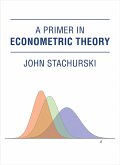The basic tools for analyzing macroeconomic fluctuations and policies, applied to concrete issues and presented within an integrated New Keynesian framework. This textbook presents the basic tools for analyzing macroeconomic fluctuations and policies and applies them to contemporary issues. It employs a unified New Keynesian framework for understanding business cycles, major crises, and macroeconomic policies, introducing students to the approach most often used in academic macroeconomic analysis and by central banks and international institutions. The book addresses such topics as how recessions and crises spread; what instruments central banks and governments have to stimulate activity when private demand is weak; and what "unconventional” macroeconomic policies might work when conventional monetary policy loses its effectiveness (as has happened in many countries in the aftermath of the Great Recession.). The text introduces the foundations of modern business cycle theory through the notions of aggregate demand and aggregate supply, and then applies the theory to the study of regular business-cycle fluctuations in output, inflation, and employment. It considers conventional monetary and fiscal policies aimed at stabilizing the business cycle, and examines unconventional macroeconomic policies, including forward guidance and quantitative easing, in situations of "liquidity trap”—deep crises in which conventional policies are either ineffective or have very different effects than in normal time. This book is the first to use the New Keynesian framework at the advanced undergraduate level, connecting undergraduate learning not only with the more advanced tools taught at the graduate level but also with the large body of policy-oriented research in academic journals. End-of-chapter problems help students master the materials presented.
Hinweis: Dieser Artikel kann nur an eine deutsche Lieferadresse ausgeliefert werden.
Hinweis: Dieser Artikel kann nur an eine deutsche Lieferadresse ausgeliefert werden.








